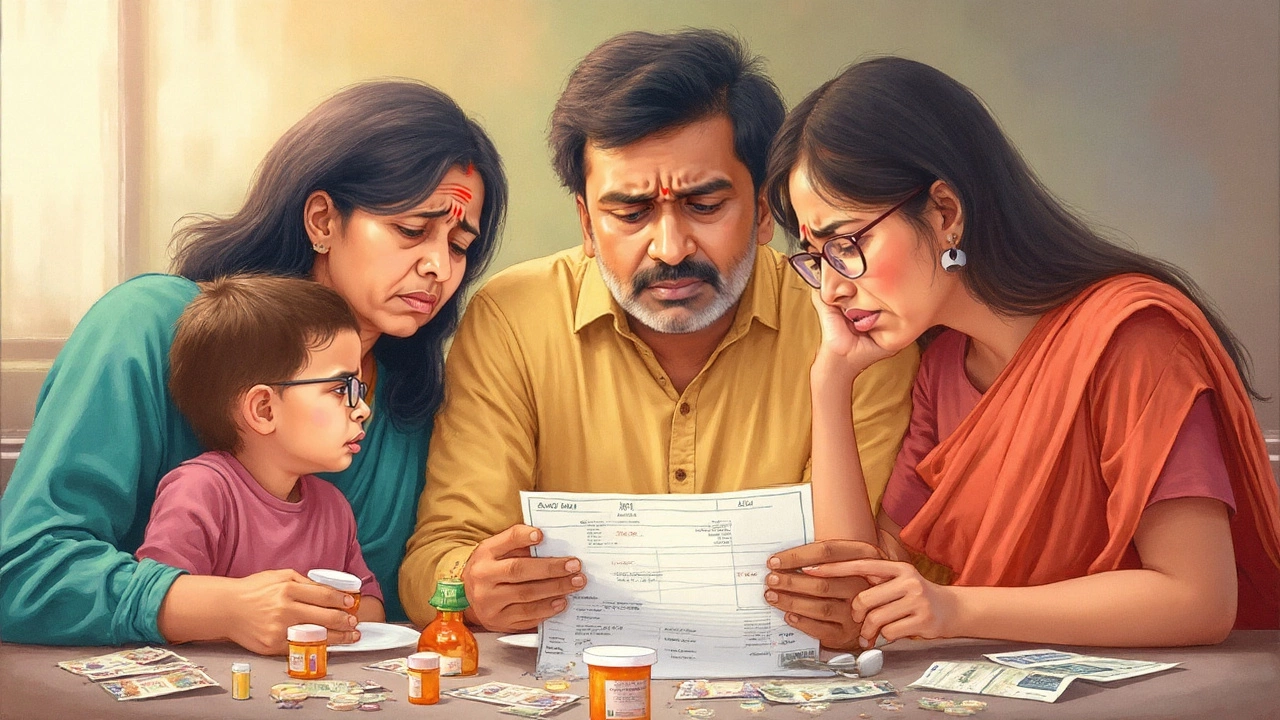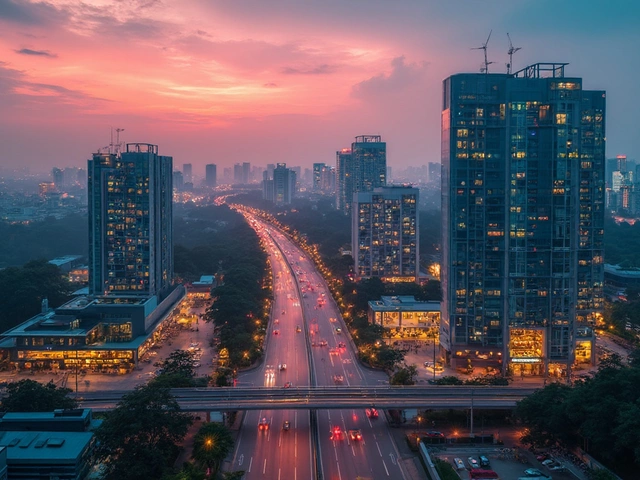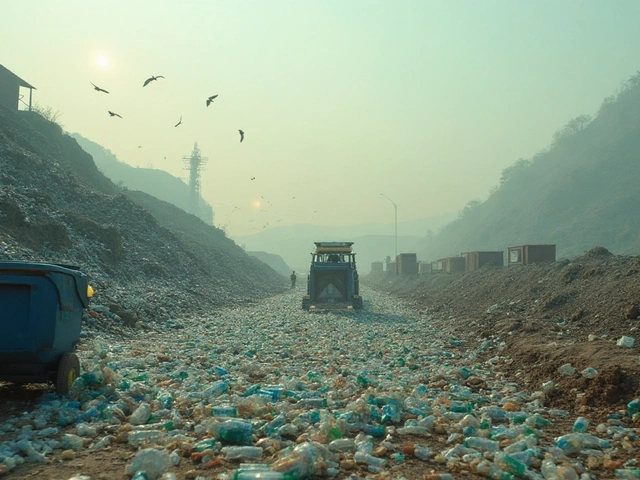Imagine waking up to see your dad's arthritis medicine price triple in just a few years. That's not just a headache for your wallet—it's a real-life story for millions. The AbbVie scandal didn’t start with a single press release or after some boardroom confession. It bubbled up slowly, with patients, doctors, and even politicians getting frustrated and suspicious about what was really happening behind the closed doors of one of the world's biggest pharma companies.
How AbbVie Became a Household Name for Controversy
AbbVie used to fly under the radar—unless you follow pharma stocks or take Humira for an autoimmune disease. But everything changed when the public realized just how much power drug companies could have over people’s lives, especially when it came to pricing essential medicine. Humira, AbbVie’s superstar drug, became the best-selling drug worldwide, bringing in more than $20 billion a year at its peak. Humira alone was making more money than the GDP of some small countries.
Here’s where it gets interesting: instead of the price of Humira dropping over time like you’d expect for an older drug, between 2014 and 2022, the price in the US went from around $19,000 to more than $60,000 a year. Not for anything fancy, just the same injections people have been taking for years. That left Americans paying more than twice what people in Europe and Canada were spending for the same stuff. People started asking: Was this just normal business, or something bigger and shadier?
The drama heated up in 2020, during public hearings on drug pricing, when Congress called AbbVie’s CEO Richard Gonzalez to explain why US patients were forking out mind-boggling amounts for Humira. Suddenly, AbbVie was everywhere—from news headlines to angry group chats. Whistleblowers and leaked documents revealed a pattern: AbbVie had been endlessly tweaking Humira’s formula and delivery method, then patenting each barely-changed version to keep generic competitors out of the US market—a strategy called “patent thicketing.”
Let’s add a jaw-dropping data point. According to the House Oversight Committee in 2021, AbbVie filed over 250 patents related to Humira alone. That meant anyone who wanted to offer a cheaper alternative in America couldn’t legally do so. For people needing Humira for Crohn’s disease, rheumatoid arthritis, or psoriasis, this wasn’t just some business move. It put necessary care out of reach for many folks, which is the sort of thing that gets people angry—especially when you learn that the same drug is much cheaper in other countries.
Even more, AbbVie poured billions into aggressive marketing and “copay assistance” programs. Sounds helpful, right? But these programs often kept patients and insurers locked into using expensive brand-name drugs instead of generics—or even pushed doctors to prescribe them first. That set off even more alarms, with new lawsuits from states and insurance companies, and political efforts to squeeze Big Pharma into playing fair.
The Scandal Breaks: Investigations, Lawsuits, and Accusations
The dominoes really started to fall from 2019 onward. Federal investigations dug into whether AbbVie’s salespeople used illegal kickbacks or misleading tactics to push their drugs. In some cases, doctors who prescribed more AbbVie drugs got invited to lavish "consulting" dinners or received paid trips, under the guise of education. States like California and New York accused AbbVie of defrauding their Medicaid programs by manipulating how copay assistance was advertised and distributed.
The biggest headline of 2022 was a class-action federal lawsuit alleging AbbVie’s patent games were more than just tough business—they could be anticompetitive behavior that hurt everyone who relies on affordable medicine. The Federal Trade Commission (FTC) began looking into these “patent thickets” to see if they were stopping fair competition. To make this even clearer, let’s check out a quick data snapshot:
| Year | US Humira List Price (per year) | Patents Filed (Humira) |
|---|---|---|
| 2014 | $19,000 | About 60 |
| 2017 | $37,000 | 160+ |
| 2022 | $60,000 | 250+ |
A lot of this stuff is legal, technically. US patent law lets companies protect their inventions, and copay programs aren’t always scams. But the public furor wasn’t just about “what’s legal”—it was about what felt right, what seemed fair. Insurance companies started filing their own lawsuits, arguing that AbbVie trapped the US market, and patients flooded social media with stories of having to choose between medicine and mortgage payments.
Congress got involved in a big way. Lawmakers grilled AbbVie and other companies at televised hearings, and there were dozens of proposed bills aimed at stopping patent abuse and increasing transparency in drug pricing. Some of AbbVie’s strategies ended up costing taxpayers billions, thanks to how Medicare and Medicaid are set up. If a cheaper generic isn’t allowed on the market, government programs don’t get the savings—and that means every taxpayer is footing part of the bill.
Industry insiders weren’t surprised. Patent thicketing and “evergreening” (minor product changes that win new patents) have been industry inside jokes for years. The difference? This time, the documents were out in the open, and the numbers were just too big to hide. Remember that Humira has made more than $200 billion since its launch—enough to fund half of NASA’s annual budget for a decade. Hard to ignore that kind of impact.

The Impact: Who Paid the Price and Who Got Paid
The direct winners seem obvious: AbbVie, its executives, and its shareholders made out like bandits. In just a decade, AbbVie went from new kid on the block (splitting off from Abbott Laboratories in 2013) to a Wall Street darling. CEO pay skyrocketed alongside revenues, and shareholders got hefty dividends. The company funneled some of those profits into more research, which is the go-to defense of every big pharma firm facing backlash: “We set high prices to fund new cures.”
But those high prices had real consequences. I’ve seen friends skip doses to make their prescriptions last. Maybe you have, too. Insurance premiums went up—sometimes quietly, sometimes in big chunks. State Medicaid programs shelled out way more than they would have if generics had entered the market as soon as it was safe. Across the country, patients racked up medical debt or gave up on treatments they needed. The ripple effect touched millions, and not just people using Humira or an AbbVie drug, but anyone who pays for health insurance or pays taxes—so, pretty much everyone over the age of five. Even employers suffered; higher costs meant shifting more health expenses onto workers or dropping coverage altogether.
On the flip side, some people believe the system, as broken as it seems, does push for more innovation. The patent profits let companies chase harder-to-treat diseases, and Humira’s success did lead to new research in immunology. But it’s hard to argue that letting so many people shoulder these costs is a fair trade. And when you see how quickly other countries got access to Humira biosimilars (kind of like generic versions for complex biologic drugs)—with prices dropping 50-75% within a year of competition—you have to wonder why American patients were left hanging.
The scandal’s fallout is bigger than just one company or one drug. The lawsuits and investigations set off a wave of pharma industry changes. Companies are starting to second-guess whether aggressive patent games are worth the PR risks. Humira itself is now facing biosimilar competition in the US after years of delay, finally bringing prices down a bit (though not as fast or as much as people hoped).
Pharmacists and doctors are talking more openly with patients about actual costs, and some are even helping people find supply “loopholes”—like ordering from licensed pharmacies in Canada, though that’s a risky move legally. Health tech startups are pushing pricing transparency and crowd-sourced reviews of drug assistance programs. The scandal’s headlines prompted some states to pass laws demanding more public info about how (and why) drug prices are set.
What Can Patients and Policy Makers Learn from the AbbVie Scandal?
So here’s the big question: what should you do if you find yourself caught in the crossfire of pharma pricing wars? First, if you or someone you know needs a drug like Humira, always ask your doctor and pharmacist about patient assistance programs, biosimilars, and even cash prices at different pharmacies. Sometimes the “official” cost and the real out-of-pocket price vary so much it’s wild. Don’t be afraid to compare and shop around—it could mean hundreds of dollars in savings every month.
Watch out for copay assistance traps. These sound helpful, but sometimes they just shift costs elsewhere, like to your insurance or next year’s premiums. Ask your pharmacist to explain how it works for your specific situation before you sign up. And keep an eye on new biosimilars; the FDA approved several for Humira, with more coming. If your insurer or doctor says you can’t switch, politely press for a reason—and if you get a vague answer, ask again.
For regular folks, the AbbVie scandal is a wake-up call to stay curious about drug costs and not just trust the glossy ads and friendly coupon cards. For policy makers and watchdogs, it’s proof that transparency only works if rules have teeth. Some smart thinkers are floating ideas like "patent cooldowns," drug price negotiation for Medicare (finally allowed starting in 2026), and even criminal penalties for companies abusing the system. If those stick, the next round of scandals might be a little less wild.
Here’s the bottom line: the AbbVie scandal is more than just a mess about one overpriced drug. It revealed how laws, money, and medicine get tangled, and how hard it can be for everyday folks to get a fair shake. If you remember anything, remember this: the more questions you ask, the more power you have over your own healthcare. And don’t expect the drama to die down anytime soon.








Write a comment